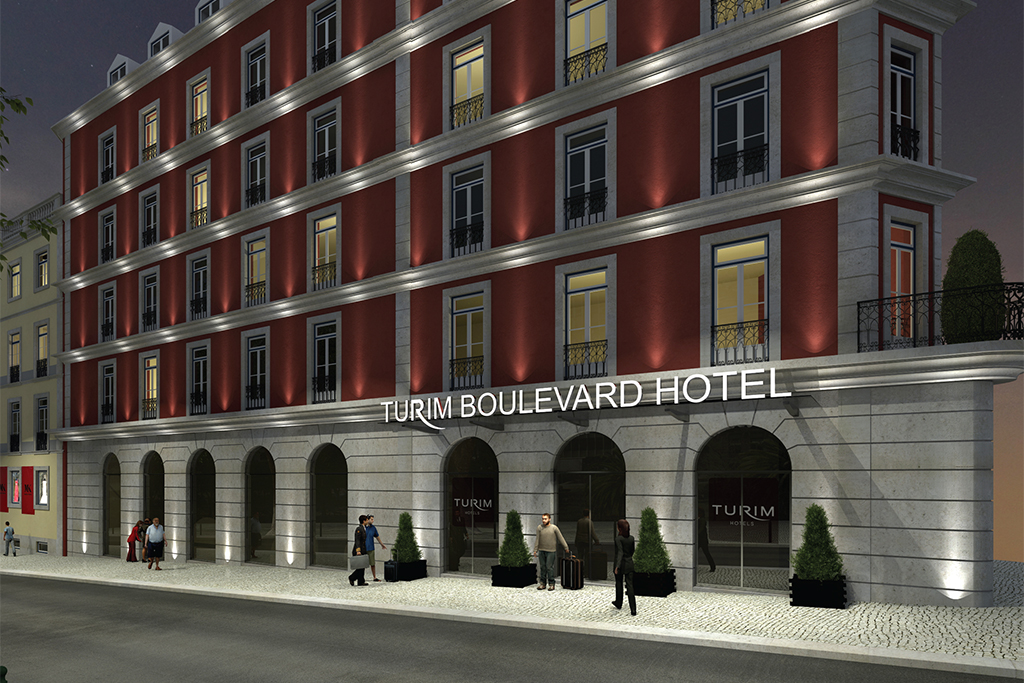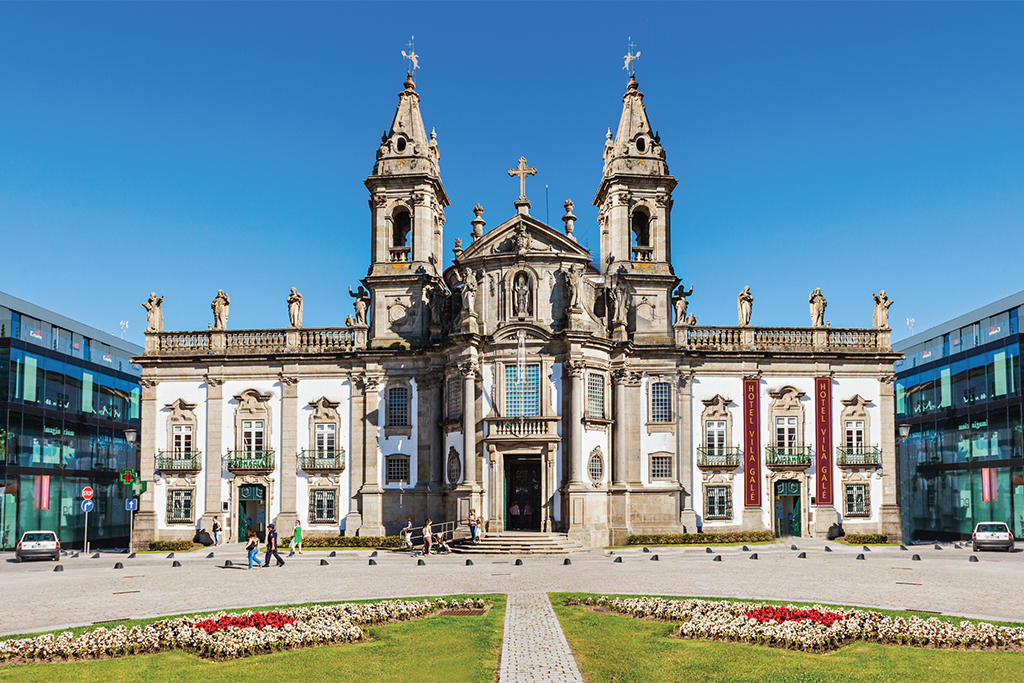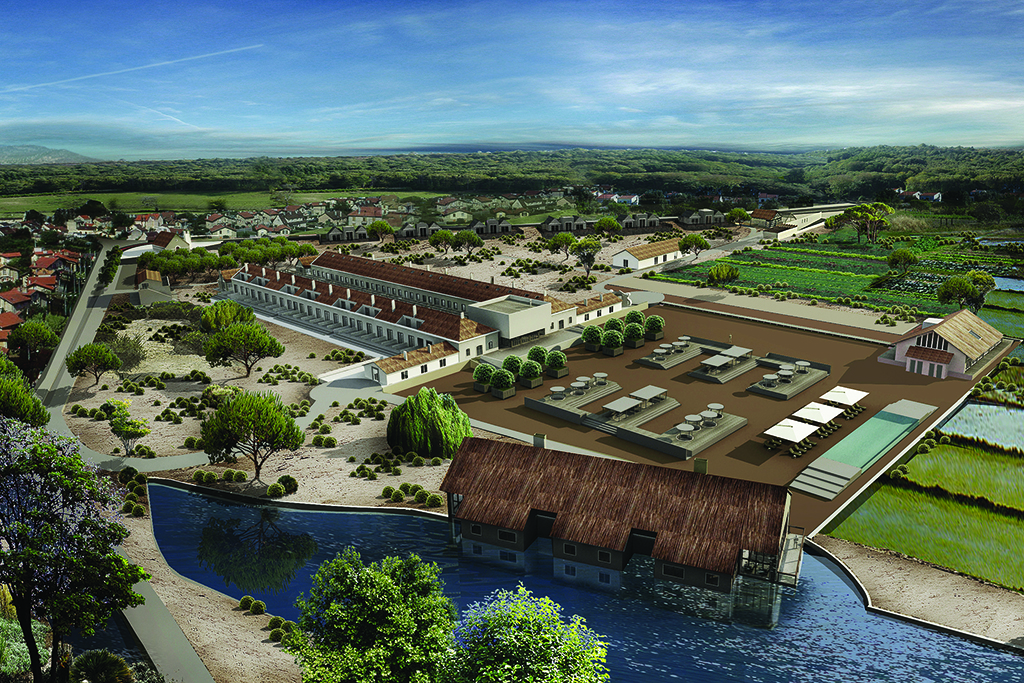Tourism boom leads to hotel euphoria
An average of five new hotels per month are opening their doors from north to south of the country. The tourism boom is set to last.
More than five centuries after making a decisive contribution to outlining the world on a map, the Portuguese are now seeing half the world visiting their own country, to the extent that Portugal was officially named the best international tourist destination at the prestigious World Travel Awards, making it the first European country to gain the distinction.
Keeping pace with these new times, the hotel sector has multiplied the number of new units and invested in renovating so many others. Last year alone, 45 new units were inaugurated, and this year, a further 61 hotels are expected to open their doors, along with 23 further renovations. The region of Lisbon is the record- holder with 29 new hotels and six remodelled or expanded spaces, followed by the Porto Metropolitan Area with 14 new hotels and another six renovated buildings. The Algarve expects just one new hotel and five renovations.
These are the figures from the Portugal Hotel Association (AHP) which, at a conference that took place recently as part of the BTL (Bolsa de Turismo de Lisboa), assessed the last 10 years and recognised the unique reality we’re living today. In the past year, the market received 21 million tourists, from north to south.
Present at the conference was the Secretary of State for Tourism, Ana Mendes Godinho, who emphasised the impact of the sector on the national economy: “Since 2015, tourism has created 55,000 new jobs. And just here at the BTL, 10,000 job offers are currently being advertised. Our challenge now is to invest in qualified people for the sector, and in that sense, we all have to make an effort.”

Turim Boulevard Hotel, to open next July in Avenida da Liberdade, lisbon
The secretary highlighted the latest move to boost the market – it’s called the Business channel, managed by the national tourism association, Turismo de Portugal, and will concentrate all the relevant information for businesspeople in the hotel industry. “Here they can find the support tools that are available for the sector, institutional information, legal obligations, an events calendar and information on all the projects supported by Turismo de Portugal, among other subjects, with the rationale of being transparent and with the purpose of democratising access to information,” explained Ana Mendes Godinho.
These measures could stimulate a market that only recently started to bear fruit again. Not only is this the result of stepping up promotion campaigns abroad, but also of a series of factors, one of the most important being the issue of safety in rival markets, such as Turkey, Tunisia and Morocco.
“People tend to forget that the hotel industry went through a serious crisis from 2008 and hit rock-bottom in 2012, a time when the RevPar [Revenue per Available Room] fell to €38. They were very bad years. Just in 2015/2016/ 2017, we surpassed the pre-crisis period with the RevPar reaching €63,” notes Cristina Siza Vieira, president of the AHP Executive Board.
This increase is significant and has encouraged hoteliers to invest. “We believe that demand will continue to grow in a sustainable manner, and for that reason, there will be demand for this new hotels. Nonetheless, there is a constraint in the form of Lisbon airport and its lack of capacity,” adds Cristina Siza Vieira. For the time being, the investment trend in the sector has been ensured by national investors, even though “new international players are coming forward, which includes Iberostar, Hotusa, NH and the Vincci group”.
According to the head of AHP, international investors are indeed starting to take more notice: “They are looking for opportunities, but there isn’t that much supply. The large international hotel brands are looking for scale. They want the historical area of Lisbon and that’s impossible. You can’t get 200 rooms in the city centre. Another factor is the expectation of return; Lisbon ended 2017 with an average room price of €107. You can’t compare that to the rates these brands can charge in capitals such as London or Paris.”
Yet bit by bit, there are signs of some movement when it comes to funding, which until recently has been focused on other yielding assets in the office market or in shopping centres. Indeed, Gonçalo Garcia, head of the hotel department at CW (Cushman&Wakefield) consultants, notes that the inclusion of national hotels in institutional funds will be a trend in 2018. “That type of ‘sale and lease-back’ operations [whereby the entity sells the asset and then leases it back] has started to emerge, and there’s more to come for 2018. An example of this is the acquisition of the Lux Lisboa hotel at Parque Eduardo VII by a fund managed by Internos Global.”
This positive period in Portugal and the expectation that the fair winds are set to continue is something that is attracting attention abroad. “Investment funds want guaranteed returns from the capital they are investing, and Portuguese tourism has shown solidity. In addition, while they are looking for a scale that the urban mesh of Lisbon and Porto simply don’t have, they are also slowly adapting themselves to other types of product, such as trendy brands with a lifestyle concept, with 60, 70 or 80 rooms,” adds the CW consultant.

Vila Galé Collection, Braga
NATIONAL GROUPS DOMINATE INVESTMENT
For now, it is the national brands that are dominating the new openings. The Vila Galé group is part of these investors. Two new openings are expected this year in Portugal (and another in Brazil) and a further two in 2019, in an overall investment in the region of €50 million.
“This year we celebrated 30 years since we opened our first hotel, Vila Galé Atlântico, by Galé beach in the Algarve, which gave the group its name. For this reason, in May, when we celebrate our 30th anniversary, we’re going to open our 30th hotel [in Braga]. Before that, on April 25, we’re going to inaugurate the Sintra hotel, which will be aimed at general wellbeing and a healthy lifestyle, from the food to the fitness and relaxation component, offering holistic therapies such as yoga and Reiki,” explains Gonçalo Rebelo de Almeida, director of Hotéis Vila Galé. In 2019, the group will build a brand new hotel in Manteigas, which is in the approval stage, as well as renovate an old convent to house a further hotel in Elvas.
The Pestana Hotel Group is also carrying out “the most ambitious expansion plan ever”. At a recent conference, the group led by Dionísio Pestana summed up the last years of expansion and its short- and medium-term growth plans. Maintaining and intensifying the acceleration of the last six years, during which time it inaugurated 20 hotels in Portugal and abroad, the biggest Portuguese multinational hotel company expects to open 20 new hotels in the next three years, increasing its capacity by 3,000 new rooms by 2020. The over- all investment in this expansion will be in the region of €200 million. The Pestana Porto – A Brasileira, with 90 rooms, is the group’s latest opening.
Also in expansion is the Turim group. Family-run, bringing together three brothers in the development of a net- work that includes 14 hotels in operation and six others in the pipeline, this Portuguese player is growing significantly in Lisbon, and is set to open a new hotel in Porto next year. It currently has other projects in different stages of development in Funchal, Coimbra and Sintra.
For now, all eyes are on the opening of the group’s first 5-star, the Turim Boulevard Hotel on Avenida da Liberdade, which should take place in June.
The project dates back to 2013, when no one had foreseen Lisbon’s current tourism frenzy. “Today, the market and tourism are bigger than they were then. Naturally, we have to adapt our product to the market offer and be more competitive in our distinctiveness,” Ricardo Martins, executive president of the Turim group, told Essential, adding that “there is a lack of 5-star hotels in Lisbon”. This will be the group’s 11th hotel in the capital. In the meantime, the next Lisbon proposal, located on Avenida da República, is already underway and should be completed in 2020.
In a different vein, outside the city and among nature is Quinta da Comporta hotel. Located in an area of the Alentejo that is sparking great inter- est in the top segment of the market, this project is led by Miguel Câncio Martins, an architect of internationalrenown with projects in France, the US, Holland and Singapore, among other destinations. Now, he is embarking on a project of his own. “I always wanted to have my own hotel, and Comporta – where I started spending my holidays when I was 10 – is the perfect place for this project. It is a very special place and it didn’t have a single 5-star hotel,” says the architect, who is behind the design but also the real estate development.
An investment of €24 million, ensured by a partnership with a French investor, allowed the architect to build a luxurious hotel with 29 suites and another 20 houses aimed at the residential tourism market and hotel operation. The six-hectare plot in Carvalhal also includes a spa, a restaurant, a lounge bar, a 40-metre pool and an organic vegetable garden, among other facilities. The building work is in the final stage, with soft opening planned for the month of June and the official opening on July 16.
Still in this region, another project is already underway, the brainchild of French investor and Swiss citizen Claude Berda, whose interview can be found on page 34. The multimillionaire, one of the richest in France, launched the first stone of the Muda Reserve project at the end of last year. The €200 million development in the village of Muda, Comporta, covers 350 hectares on which 200 houses and more than 50 farms (quintas) will be constructed, with areas that could reach seven hectares. Within the spirit of sustainability of the whole project, the quintas will have the peculiarity of being dedicated to organic farming. A structure in the development will ensure the cultivation and maintenance of the ecological produce for all the property-owners who choose to do so.

Quinta da Comporta Hotel
THE IMPACT OF BREXIT ON THE ALGARVE
Sun, food and a growing feeling of security across the country have thus become unbeatable assets in the competitive tourism market. But not only that; another thing weighing in the country’s favour is the torrent of international tourism prizes that are projecting Portugal’s image like never before, not to mention the victories in global events such as the European football championship and the Eurovision song contest. Regardless of the influence of these factors in the success of the tourist scene in Portugal, there is a third factor, recognised unanimously by market operators: the great ease of travel, enabled by the democratisation of air travel (i.e. low-cost prices), the new types of accommodation (like Alojamento Local, or Local Lodging), and the emergence of multiple digital platforms that simplify the process have helped increase the number of potential clients significantly.
Nevertheless, it’s important to remember that the years of recession mean that this latest progress is simply recov- ering from the downturn. These are the thoughts of Elidérico Viegas, president of the Association of Hotels and Resorts in the Algarve (AHETA). “In business terms, we reached figures in 2017 that we had seen at the turn of the century, and so the big challenge now is to maintain those results,” he says, specifying that last year, the sector he represents finally managed to “reach the so-called critical level of 65% of average annual occupation [from which point business owners can manage their pricing policy and capitalise on investment]”.
The president of AHETA also notes that, in 2017, the British market dropped 8.5% in the Algarve, “in the aftermath not only of Brexit and the de- valued pound, but also of the recovery of rival markets that were affected by situations of great instability in the past and which have been pricing aggressively”.
The expectations for 2018 indicate that the British influx will “continue to drop”, although Elidérico Viegas counters this with “the increase of the German market and of all those small markets that, despite still being relatively modest in the total number of stays individually, together they have great importance”. All in all, “this has ended up compensating the drop in the British market, in such a way that we have even had an increase in occupation rates in the region of 2% compared to 2016”. The aim is, of course, to consolidate the recent gains.
TOP 3 TOURISTS
From a national point of view, the figures relating to outbound tourist markets – released recently by the real estate consultant Worx – show that, in 2017, the UK racked up the biggest slice of stays by nationality (16%), followed by Germany (10%), and Spain and France (tied at 7%).
However, although not being in this top 3, the biggest growth rates were registered by Brazil (which grew by over 37% compared to 2016), while the USA increased their presence in hotels by around 34%. National tourists were responsible for 27% of the total number of stays, which represented a growth of around 4% compared to 2016.
In regards to the evolution of these demand indicators, according to the sources contacted by Essential, it should remain positive, at least while there is a good economic climate and the stability that has been registered in the country and in Europe continues.









